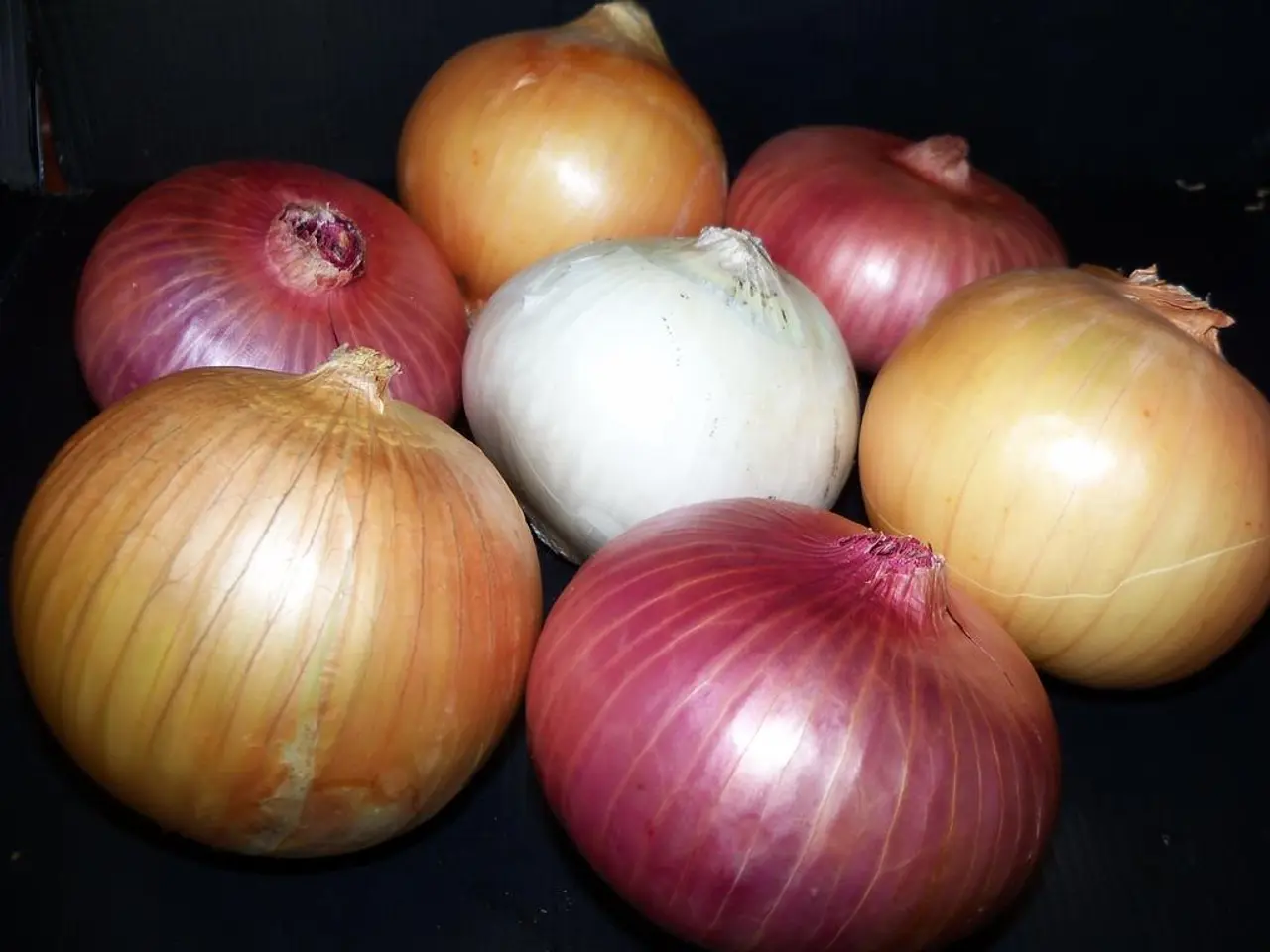Acne treatment through garlic: Is it effective and what precautions to take
In the ongoing quest for effective acne treatments, garlic has emerged as a potential contender due to its antimicrobial and anti-inflammatory properties. However, while laboratory studies have shown promising results, clinical trials involving human participants are still needed to confirm garlic's efficacy as a topical or systemic acne treatment.
A recent study revealed that a 7.5% garlic juice solution was effective against Propionibacterium acnes, the bacteria known to cause acne[1]. This suggests that garlic may have some antibacterial action relevant to acne treatment. Yet, it's important to note that these findings are based on laboratory research, and further human clinical trials are necessary to validate garlic's efficacy.
Garlic is also known to have broad-spectrum antimicrobial activity against various bacteria, but direct scientific support for its use specifically against acne-causing bacteria remains preliminary[1]. Theoretically, garlic's anti-inflammatory properties could help manage the inflammation associated with acne. However, there is no robust clinical evidence demonstrating that garlic reduces acne-related inflammation in humans[2][3].
Practical considerations and risks come into play when using garlic as an acne treatment. Topical application of garlic can cause skin irritation, chemical burns, or allergic reactions, so caution is advised[5]. Incorporating garlic into your diet may support general immune health due to its antimicrobial properties, but there is no strong evidence that eating garlic significantly improves acne[1][5].
When it comes to herbal supplements, it's crucial to remember that they can cause side effects and may interact with other medications. Therefore, a person should always talk to their doctor before taking garlic supplements. Furthermore, while garlic might help treat certain skin conditions, no research has directly investigated its potential as an acne treatment[5]. Consulting a dermatologist before applying garlic to the skin, especially for people with sensitive skin types, is recommended.
Despite the preliminary evidence, it's essential to approach garlic as an acne treatment with caution. Always consult a healthcare provider before using garlic as an acne treatment, and remember that established acne treatments, such as over-the-counter creams and ointments containing benzoyl peroxide or salicylic acid, may be more effective.
References: [1] https://www.ncbi.nlm.nih.gov/pmc/articles/PMC6859211/ [2] https://www.ncbi.nlm.nih.gov/pmc/articles/PMC4203736/ [3] https://www.ncbi.nlm.nih.gov/pmc/articles/PMC5760514/ [4] https://www.aad.org/public/diseases/acne-and-rosacea/acne/treatment [5] https://www.aad.org/public/diseases/acne-and-rosacea/acne/skin-care-tips
- Alopecia, a medical condition that causes hair loss, has not been directly associated with garlic as a potential treatment, but given garlic's antibacterial and anti-inflammatory properties, research might explore its potential benefits for health and wellness beyond skin care.
- In light of the preliminary research, science may eventually discover a role for cannabidiol (CBD) in managing acne, as CBD is known for its anti-inflammatory and antimicrobial properties. However, detailed studies on CBD as an acne treatment are still lacking.
- Skin care routines may benefit from an approach that combines traditional treatments with natural remedies like garlic. In this context, it would be prudent to explore the potential synergies between well-established acne treatments like benzoyl peroxide or salicylic acid and novel ingredients like CBD, if scientific evidence supports their use.




